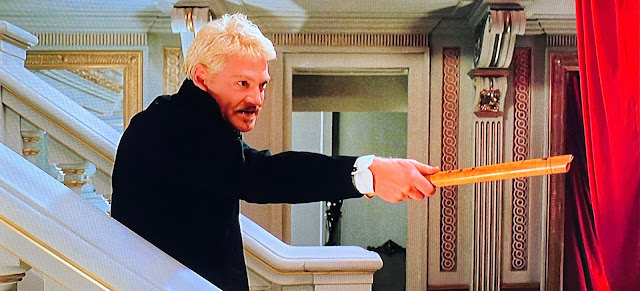R- “Recorder”
After Claudius flees from the performance of the play-with-a-play, Hamlet triumphantly begins toying with everyone around him (except Horatio of course). At one point he vehemently insists that Guildenstern play a tune on a recorder, who firmly and bemusedly propounds to know “no touch of it.” Hamlet then vociferously berates his “excellent good friends” for grossly attempting to “play” him like a pipe and “pluck out the heart of my mystery.”
Mention of a recorder—a type of simple wooden flute—only otherwise appears in A Midsummer Night’s Dream, when Hippolyta criticizes Quince’s delivery of the prologue for his company’s play-within-a-play, saying “Indeed he hath play’d on this prologue like a child on a recorder” (5.1.120). Thusly, playing a flute is doubly linked in Shakespeare’s oeuvre to the concept of naive supposition and lack of skill.
A decade after filming Hamlet, Branagh adapted Mozart’s opera The Magic Flute for cinema, something that had only once been done previously by famed director Ingmar Bergman, who made his version for Swedish television in 1975. The play tells the story of Prince Tamino and his reluctant companion Papageno, who are tasked by the Queen of Night with rescuing her daughter Pamina from the evil Sarastro. They are gifted magic instruments—a flute and a set of bells—to aid them in this quest. This flute, being magic, does not require any skill whatsoever for it to produce “much music” and “excellent voice.”
 |
| Bergman |
 |
| Branagh |
Sources:
Wikipedia: The Magic Flute (2006)
Wikipedia: The Magic Flute (1975)




Comments
Post a Comment